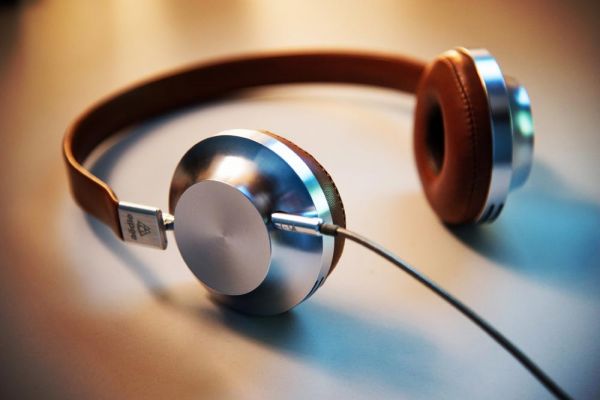 Music therapy is an incredibly common complimentary therapy used to supplement many forms of behavioral therapy, counseling, and group therapy. While music therapy is a “complimentary” therapy, it’s used to help individuals build creativity, self-confidence, and to share emotions. Complimentary or supplementary therapies are used to add to existing treatments because they don’t prove effective on their own. However, as part of a larger treatment schedule, music therapy can add considerably to the quality and results of your care.
Music therapy is an incredibly common complimentary therapy used to supplement many forms of behavioral therapy, counseling, and group therapy. While music therapy is a “complimentary” therapy, it’s used to help individuals build creativity, self-confidence, and to share emotions. Complimentary or supplementary therapies are used to add to existing treatments because they don’t prove effective on their own. However, as part of a larger treatment schedule, music therapy can add considerably to the quality and results of your care.
Music therapy is used as a tool to help individuals with mood and behavioral disorders, trauma, and even autism spectrum disorder to cope with and manage emotions, pain, and stress. This is achieved by using music to teach communication, emotional sharing, focus, discipline, and control. These all come together to build valuable life skills that translate well to emotional and mental health management – which is why music therapy is so popular for mental health treatment.
What is Music Therapy?
Music Therapy is normally divided into either Active Music Therapy or Passive Music Therapy. Some music therapy classes include just one, but most include both. Both use different methods to prompt desired results and to teach desired skills.
Active Music Therapy – Active music therapy is about building creativity and discipline by participating in learning and creating music – normally with a group. This often means choosing an instrument, learning to play it, and practicing at home and in your class. Often, instruments are simple whistles and drums or singing, which can be played enjoyably without years of effort and learning. In other cases, you might be asked to dedicate yourself to learning a harder instrument, but that will likely depend on what type of music therapy you seek out. Instead, in most classes, you’ll be given a simple instrument and asked to use focus, to build your skill with that instrument in a short time, and to participate with a group or in a one-on-one setting with your therapist.
This might include:
- Singing
- Dancing
- Playing an instrument
In most cases, it means actively using attention, focus, and discipline to create something. It means participating and coordinating with a group. It also means tackling ego and fear of failure to fail, visibly in front of a class. And, it means tackling self-esteem issues to perform, to be the center of attention, and to deal with shyness. These can all have powerful impacts on your mental health and recovery.
Passive Music Therapy – Passive music therapy is often a secondary but important element of treatment. In some cases, it’s the primary element. However, this is rarer. Here, you’ll be asked to sit and listen to music as a passive activity. This can include gentle movement, talking about music, listening, meditating, and sharing emotions around that music. For example, an exercise might be to bring a song that makes you feel a certain way, and then to discuss those emotions with the group as a group. This kind of therapy helps us learn how to share emotions, how to express emotions to others, and how to overcome barriers with hiding and stifling emotion. These are also very important skills for navigating mental health problems.
Overall, music therapy is used to:
- Teach a means of sharing emotions
- Build attention and focus
- Build discipline
- Build focus and concentration skills
- Encourage mindfulness
- Encourage creativity and achievement
- Encourage feelings of solidarity and togetherness in groups
These can each be extremely positive goals for individuals struggling with mental health disorders.
How Does Music Therapy Actually Help with Mental Health?
 Music therapy won’t help you fix or cure any mental health disorder. Instead, it will help you to build positive experiences and skills that help you to better navigate mental health disorders. That’s why the Gooden Center offers music therapy as part of our treatment program. It can help you to improve quality of life by building skills you need to enjoy life. And, it can help you to relax and enjoy yourself with people by putting you in a medium to help you overcome social anxiety.
Music therapy won’t help you fix or cure any mental health disorder. Instead, it will help you to build positive experiences and skills that help you to better navigate mental health disorders. That’s why the Gooden Center offers music therapy as part of our treatment program. It can help you to improve quality of life by building skills you need to enjoy life. And, it can help you to relax and enjoy yourself with people by putting you in a medium to help you overcome social anxiety.
Essentially, music therapy is a bridge between group exercise and group crafts – with an element of therapy and a counselor trained to guide you through emotions, fears, and problems.
Self-Awareness – Learning to create music, actively doing so in a way to share emotions, and actively connecting with others requires a high level of self-awareness. One of the goals of music therapy is to build that self-awareness in patients. You can’t create a piece of music about an emotion you are feeling without first being aware of that emotion, how it affects you, and where it comes from. Over time, that skill of evaluating emotion and assessing how it impacts you is an incredibly valuable life skill.
Self-Esteem – Most people come to music therapy with a fear of failure and a fear of doing the wrong thing. We quickly learn that everyone else is in the same boat, with a few exceptions of people with prior music training. Learning together, improving a skill, and then practicing it with others can be a wonderful means of improving self-esteem. After all, you’re not here to get good at music, you’re here to build a skill and to share with others. And, simple acts of creation can be incredibly good for your self-esteem.
An Emotional Outlet – Most of us already recognize that music can be an emotional outlet. That’s why most of us have songs we listen to when we’re sad. But, deliberately creating a space for music, creation of music, and sharing around music can be an even more powerful outlet. Instead of just listening, you can assess why you feel that way, what you feel, and take time to acknowledge it and process it. Creating, dancing, moving, and building with others can be a release to those emotions. This is incredibly important, especially for individuals struggling to acknowledge and share emotions. This is why music therapy is so commonly recommended for people with anxiety and trauma.
Building Focus – Creating music, sitting and listening to music, and otherwise spending time focusing on one thing with a group can be good for you. While it’s certainly easier to do so in a group space with people, the act of doing so can help you to build discipline and focus that translate to other areas of your life. Building the discipline to play an instrument, to practice a song, to learn to create music with a group translates to skills that help you maintain your own habits and routines so you can stay healthy.
Participating in Music Therapy
Music therapy is a complimentary therapy that adds onto another therapy like cognitive behavioral therapy. It adds to the effects of another treatment, working to build positive skills and habits. It’s not a treatment in and of itself. However, it can be a powerful way to boost your self-esteem, to build emotional sharing, and to build focus and discipline. If you’re attending mental health treatment at the Gooden Center, music therapy is one of our options. You can always choose to take part in a few classes, decide if it’s right for you, and choose to stay with it or not.
Music therapy is common, backed by evidence in psychological research literature, and easy to attend. While it does require commitment, being open to participation in groups, and commitment to relaxing and going with the group. All of this makes it extremely useful and helpful for individuals going through other types of therapy.
If you want to more information about mental health treatment and the therapies offered at the Gooden Center, let us know. Or, call us at 800-931-9884 for a free consultation.